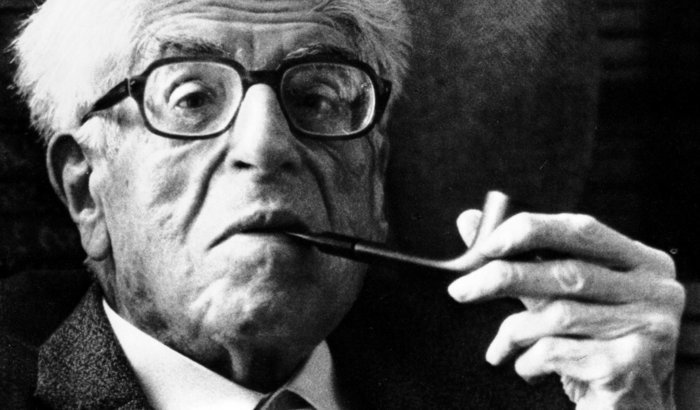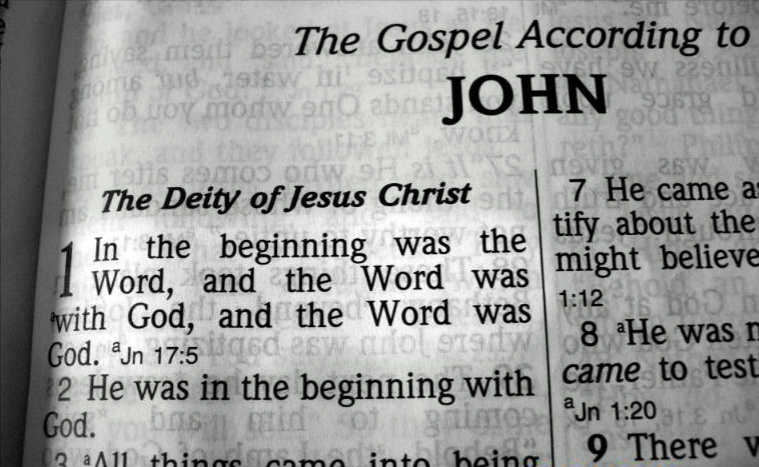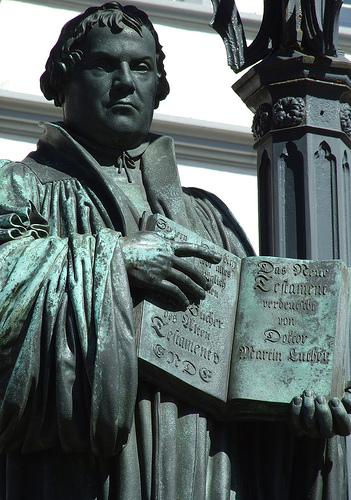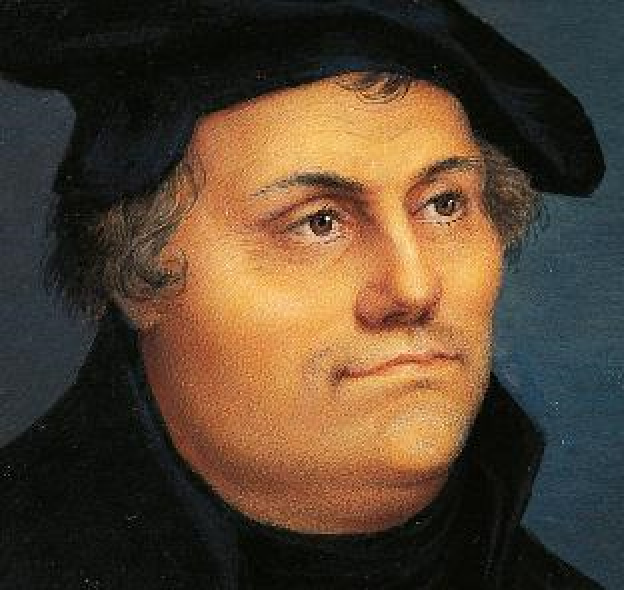 The latest issue of Crucible is now available sans book reviews. This issue, devoted to the Psalms, includes a small article in the Ministry Resources section by David Cohen from Vose Seminary on “Using the Psalms in Ministry.”
The latest issue of Crucible is now available sans book reviews. This issue, devoted to the Psalms, includes a small article in the Ministry Resources section by David Cohen from Vose Seminary on “Using the Psalms in Ministry.”
Monthly Archives: November 2017
Neo-Marxism & Christian Hope
 Matthew Rose’s “Our Secular Theodicy” over at First Things is well worth reading. It explores the message and legacy of Ernst Bloch, a German philosopher of hope often cited by Moltmann in his work. Here are a few citations:
Matthew Rose’s “Our Secular Theodicy” over at First Things is well worth reading. It explores the message and legacy of Ernst Bloch, a German philosopher of hope often cited by Moltmann in his work. Here are a few citations:
Bloch is a guide into the concealed theology of contemporary liberalism, whose outlook remains profoundly, if paradoxically, biblical in one respect. Having rejected a Christian understanding of nature, it retains an intensely Christian understanding of history. It sees human history as goal-oriented and our advancement as a series of conversions and liberations, the outcome of which is the creation of a community that can redeem our fallen history…
Theodicy is the attempt to justify the goodness and providence of God in view of the reality of evil. Bloch is engaged in theodicy, too, but of a much different kind. His theodicy is humanistic. It is an attempt to make sense of humanity in view of its apparently senseless history. Only by creating a just community, Bloch posits, can we vindicate past and present injustices. Hope gives us the strength to undertake this massive, world-justifying responsibility. It refuses the limitations of the visibly possible and rebels with the conviction that a radically different way of life is attainable. Hope is therefore not the power to wait patiently for a home in eternity; it is the daring power to create a true and lasting home here on earth. Aquinas named this the vice of presumption, but for Bloch it is the one thing needful…
To my knowledge, Bloch is the only philosopher to have used Jesus to defend outright atheism. . . . According to Bloch, however, Jesus achieves a lasting victory in his error and defeat. Through his life and death, this ill-fated Spartacus becomes the savior of humanity—not by reconciling humanity to God, but by freeing humanity from God. Bloch arrived at this remarkable conclusion by interpreting the Bible as the story of the awakening of human autonomy and its rebellion against all forms of oppression…
Bloch saw Christianity as the most revolutionary movement in human history. It opened the way to political goals that could not otherwise be discovered, creating what Immanuel Kant called the “immanent expectation” of “the victory of good over evil.” The God of the Bible offered humanity the saving hope of liberation from captivity. In doing so, however, God gave us the keys to his holy kingdom. We learned that we are meant, in Bloch’s words, to “walk upright.” And this subversive imperative leads believers to take leave of God in the name of God.
A Prayer on Sunday

Creator Lord, who reconciled us to yourself by the death and resurrection of your Son, and made with us an eternal covenant; grant that we may show in our lives what we profess with our lips, to your glory; through Jesus Christ our Lord. Amen.
(An Australian Prayer Book, 60)
The Word & Work of God
 As Barth considers the eternal will of God in the election of Jesus Christ, he notes in passing that,
As Barth considers the eternal will of God in the election of Jesus Christ, he notes in passing that,
The very best of the older theologians have taught us that in the word which calls and justifies and sanctifies us, the word which forms the content of the biblical witness, we must recognise in all seriousness the Word of God. Beside and above and behind this Word there is none other. To this Word then we have good cause to hold fast both for time and eternity. This Word binds us to itself both for time and eternity, and in it all our confidence must be placed. This Word does not allow us to go beyond it. It allows us no other view of God or man than that which it reveals itself. It focusses all our thoughts upon this view and keeps them focussed there. It warns us against any distraction. This Word alone must satisfy all our questioning because it alone can do so. The work of God is revealed in this Word in its totality, being there revealed in such a way that there can be no depth of the knowledge of the divine work except in God’s Word, and the knowledge of the divine work cannot lead us to any depth which is not that of God’s Word (Church Dogmatics II/2, 150).
Barth is here arguing against speculative doctrines of divine election that begin elsewhere than with the revelation of God given in Jesus Christ. How can we truly understand the divine work if we turn from the place where God has made himself known: Jesus Christ, as he is attested for us in holy scripture. When Barth says, “Word of God” we do well to keep in mind that he refers to both the Living and the Written Word in their mutual relation.
Of interest to me was the last sentence in the above citation, which provides a hermeneutical and methodological principle: The work of God is revealed in this Word in its totality, being there revealed in such a way that there can be no depth of the knowledge of the divine work except in God’s Word, and the knowledge of the divine work cannot lead us to any depth which is not that of God’s Word.
It is not uncommon to speak with Christians who adhere, for example, to the word of Jesus but who do so in a way at odds with the life and work of Jesus. Nor is it uncommon to speak with Christians who seek to follow in some aspect of the way and ethos of Jesus but do so in a way at odds with his teaching. For Barth, Jesus Christ is the criterion of all knowledge of God, but Jesus Christ as both the word and the work of God. No separation is permissible here, nor any division on the one side or the other. It may be that the emphasis falls now at this point, and then at another. It is likely that theological reflection leading to faith and work will alternate back and forth between the two, allowing both the Word of God and the work of God to mutually inform one another, but always with a precedence given to the Word which binds us to itself, and to and by which we also are bound.
Scripture on Sunday – 1 Samuel 7:3-17
In verse three Samuel reappears in the narrative, having been out of the picture since chapter 4:1, and out of the picture for perhaps as long as twenty years. After their devastating loss to the Philistines Israel was indeed impoverished, and subject at least, to Philistine power. During this time Samuel continued to grow, not only in years but in his call, service, maturity, and reputation. Samuel was a prophet-judge, a circuit judge “bringing justice and encouraging worship” on an annual basis in the region where he served (Evans, 54). The four cities mentioned—Bethel, Gilgal, Mizpah and Ramah—are all centrally located a little south of Shiloh.
But Samuel appears to have done more than become a localised prophet or judge. In verse three he is addressing “all the house of Israel,” with a call to repentance that includes a rejection of idolatry. In the pre-exilic period of Israel’s history idolatry was a perennial issue, a form of religious-cultural syncretism, in which Israel were not whole-hearted in their devotion to God. Samuel confronts this attitude head-on:
If you are returning to the Lord with all your heart, then put away the foreign gods and the Ashtaroth from among you and direct your heart to the Lord and serve him only, and he will deliver you out of the hand of the Philistines.
To the modern western mind, the idea of idolatry is curious if not foolish, primitive and superstitious. But the ancient Israelites were simply adapting themselves to the surrounding cultures, adopting their mores and religious values, and the promise of security that they brought. Seen in this light, idolatry is not simply the worship of wood and stone statues, but seeking one’s security in and setting one’s heart on anything other than the one God. Samuel will have none of it. True repentance will be indicated by the sole devotion of their hearts toward God; there is no place here for a divided heart.
True repentance, and true religion, are matters of the heart. This is understood in the Old Testament as the defining and motivating centre of human personality. It is this centre, as representing the whole, which is to “return” to the Lord in full and sole devotion. “For human beings,” says Murphy, “monotheism is never just a theory, but a decision” (52). And if Israel will do this, Samuel promises, God will deliver them from the power of the Philistines.
Samuel, it seems, has managed unify Israel, or at least gathered them in unity to Mizpah. The prophet-judge is in this sense also a prophet-general, a military as well as juridical and religious leader, as was common with a number of earlier judges. The gathered people confess their sins and make an offering to the Lord.
What happens next is difficult to describe. There is both a military confrontation and a divine intervention. Or it may be that the divine intervention was through the military confrontation. Murphy suggests,
What happens in the story theologically is that ‘the Lord thunders’ against the Philistines and throws them into terrified flight; what happens humanly is that all the tribes act as one; and these two, the human and the theological, occur simultaneously (53).
All the focus of the narrative is on Samuel and his action. Samuel does not fight; he prays and sacrifices, and God hears and answers his prayer. Certainly Israel fights and pursues; certainly God superintends and gives deliverance. Yet it is Samuel’s leadership, his wholehearted and single-minded devotion to God which calls, inspires, and gathers Israel, and acts as a lightning rod of divine presence in the face of imminent threat and crisis.
There is no doubt that this was a significant military victory: the power of Philistia over the Israelites was decisively beaten for the whole period of Samuel’s life. More significantly, it was a crucial stage along the road of Israel’s national and religious development. Through the force of Samuel’s example, spirituality, and leadership Israel, emerging from a period of terrible defeat and oppression, was becoming unified as one people devoted to one God.
2018 Australian Theology Conferences
 Two Australian theology conferences have released their Calls for Papers. The 2018 ANZATS Conference is scheduled for July 1-4 in Brisbane, and is themed “Sacrifice.” The Karl Barth Study Group will meet again at this Conference for our fourth time.
Two Australian theology conferences have released their Calls for Papers. The 2018 ANZATS Conference is scheduled for July 1-4 in Brisbane, and is themed “Sacrifice.” The Karl Barth Study Group will meet again at this Conference for our fourth time.
Shortly after that, the 2018 Theology Connect Conference is scheduled for July 13-14 in Sydney. Its theme is “Sin and Grace in Christian Theology.”
And then shortly after that, Vose Seminary is conducting a conference with Wisdom Literature specialist, Tremper Longman – details to follow shortly! But save the date: August 28-29, 2018.
Martin “Eleutherius” Luther
 I learnt a great deal while preparing my paper for the recent Luther@500 Conference at Vose Seminary. None of it was original, of course, but a harvesting of the fruits of others’ scholarship informing my own engagement with Luther’s writings. The point most significant for me was the dawning recognition that Martin Luther was not always Martin Luther. This is one of those “obvious” facts, that sits on the edge of awareness but then the penny drops.
I learnt a great deal while preparing my paper for the recent Luther@500 Conference at Vose Seminary. None of it was original, of course, but a harvesting of the fruits of others’ scholarship informing my own engagement with Luther’s writings. The point most significant for me was the dawning recognition that Martin Luther was not always Martin Luther. This is one of those “obvious” facts, that sits on the edge of awareness but then the penny drops.
I had known that young Martin was born to Hans and Margarete Luder. In biographies and other Reformation sources, the family name is always applied to Luther’s parents. Yet, somehow, I had never gone on to ask the question, How and when and why did Martin Luder become Martin Luther?
In my research it became clear that the change had already occurred by the time Luther posted his Ninety-Five Theses, for the superscription for the Theses uses the name, although spelt Lutther. Whether this was intentional or a printer’s mistake in the facsimile I examined, I do not know. We know, too, that Luther sent a copy of his Theses to Archbishop Albrecht of Mainz on October 31, 1517, in the name of “Luther” (see Wengert, ed., The Annotated Luther Volume 1:The Roots of Reform, 34, 47-55). Bernard Lohse suggests that this was the first time that Luder adopted and used this name (Martin Luther’s Theology, 101).
Historians note that it was not unusual for humanists to adopt a Greek form of their name to produce a scholarly pseudonym. For example, the brilliant young humanist Philip Schwarzerd, who entered the University of Heidelberg at the tender age of twelve, is better known by his Greek name: Philip Melanchthon (Evans, The Roots of the Reformation, 273).
Around this time Luther also began using a Greek name when he signed his letters: eleutherius – the free one. Heinz Schilling suggests that as Luder’s work took him out of the academy and into the world of the common folk among whom the Greek name would be meaningless, “he preserved a reminder of the freedom that was at the heart of reformed theology: the central th in the Greek form of his name was carried over into his family name. Martin Luder became Martin Luther” (Martin Luther: Rebel in an Age of Upheaval, 139).
It is possible that Luther wanted to change his name for other reasons. Marcus Wriedt suggests that “Luder” bore the connotation as such words as ‘dirt’ or ‘garbage’ (“Luther’s Theology,” in Cambridge Companion to Martin Luther, 86). Whether in the sixteenth century the word had the colloquial connotations it does in the modern period—i.e. as a reference to a “common” woman considered an immoral “hussy”—I cannot say.
What is significant, I believe, is that Luther used his new name—indicative of a new identity?—in his first foray into the public sphere with the new theology that he had been developing and teaching at the Wittenberg University for several years. In his letter addressed to Albrecht, and in his Ninety-Five Theses, Luther was identifying as one freed by Christ and the gospel; freed from scholastic theology, freed from the fear of judgement, freed in order to help others find similar freedom.
Luther’s very name is itself testimony to the heart of his theological and pastoral vision: a theology of freedom issuing from the free grace of the free God who makes his people free. Scott Hendrix concurs: “From this point on [here, 1521], freedom for Luther meant living bound to Christ, and that freedom made him much more than a protester against indulgences or a critic of the pope. Now he was a man with a larger vision of what religion could be and a mission to realize that vision by making other people free” (Martin Luther: Visionary Reformer, 115).
Of course, Luther’s freedom is the paradoxical freedom of the one who has been found and bound in Christ. This is worlds away from libertarian concepts of personal and individual autonomy common today. It is the freedom of one so free they become free even from themselves, even from their own will to be free: they become servants of Christ and of others. This is the genius of Luther’s little tractate The Freedom of a Christian.
Scripture on Sunday – 1 Samuel 6:1 – 7:2
The ark has wreaked havoc in Philistia, or so it seems, and the leaders want rid of it. They seek the counsel of the priests and diviners, who suggest returning it with a “guilt offering” so that healing might come to the people. On the one hand, they assume that the trouble that has befallen them is the direct action of Israel’s God. On the other, however, a question remains whether this is in fact the case, or whether they have had a particularly bad run of luck (v. 9). Nonetheless, their counsel assumes that the root of their problems is God.
The guilt offering suggested was five golden mice and five golden tumours—corresponding, probably, to their afflictions, and presumably, to their cause. By sending these tokens with the ark they acknowledged that this plague had come from God, and by sending them out of the country, they also are symbolically sending the plague away. Although it is easy to view the Philistines as deeply superstitious, such a characterisation is less than fair. Indeed, the text itself indicates that the Philistines are aware of what happened to Pharaoh and the Egyptians, and take it as a warning (v. 6).
The priests and diviners do not make it easy on themselves. They insist on a new cart with cattle that have never been yoked. They choose milk cows with calves, but take the calves away from the cows. The cows are left free to go where they will, yet they do not return back to their calves, but go straight toward the land of Israel; the plagues have not been a coincidence.
The people of Beth-shemesh rejoice to see the ark and offer appropriate—and costly—sacrifices. But, and here the story takes an interesting twist, some of the people look into the ark and are struck dead. (One wonders what Calvin would make of those who seek to “peer into the depths of God.” Calvin repudiated such speculative attempts to apprehend the essence of God, and insisted that we content ourselves with that which God has revealed.) Again there is a difficulty in the Hebrew which suggests that perhaps 50,070 people were killed, but the structure of verse nineteen is difficult, and most translations and commentators opt for the more “reasonable” number of seventy. Nevertheless, this cost is too great for the people of Beth-shemesh and they send it away to Kiriath-jearim where it remains for some twenty years.
In chapters four and five we found that God had judged his people and allowed them to be decisively defeated. God has also allowed himself to be “captured,” to be taken into the hands and control of the pagans, to be exiled and cut off from his people. And yet God is not captured, not exiled, not defeated, and not controlled. God remains Lord even in “defeat.” God bears witness to himself where Israel has failed to do so, and so wins the acknowledgement and grudging respect, if not the love, of the Philistines. God has now returned from his exile, returned to his people, but God will not be their captive or their possession either. The people of Beth-shemesh have transgressed the boundary, presumed upon the divine majesty, and failed to consider his holiness. They have not, as the early Barth insisted in his first Romans commentary, “respected the distance.”
It is likely, as Murphy notes (48), that no one really understands the disasters in 1 Samuel 5-6, for the passage lies beyond our historical ability. This does not mean, however, that we can gain no instruction or benefit from it. The ark is the symbol—and sacrament—of the divine presence. Indeed Murphy declares that “it is not possible to understand this carnival of the glory of the Lord in his ark without appreciating sacramental power” (49). The ark is an earthly tangible thing, but simultaneously the divine throne by which God is present with and enthroned amongst his people. Its potency is “a visible symbol” of the glory that it bears (ibid.). As the divine throne it is also sacred, and to be acknowledged, honoured and treated as such. Evans (50) wonders whether Paul might have had a passage like this in mind when he warned against misuse of the Lord’s Supper in 1 Corinthians 11.
Within the overall structure of the narrative, another insight dawns. The ark is now housed at Kiriath-jearim for twenty years—a back-water, out-of-the-way kind of place—side-lined, and marginal to the life of Israel, until David retrieves it and brings it to Jerusalem in 2 Samuel 6. This is a figurative portrayal of the sidelining of God in the national life; the divine kingship is marginal until David is established as king and the ark restored to Jerusalem (see Murphy, 51). If this interpretation is accepted, it provides a lens through which the rest of the book is to be understood, and in particular, the reign of Saul.
One further point of instruction may be possible. It may be appropriate to read this text typologically or allegorically, as pointing to Jesus Christ, who is in his own flesh, the presence and covenant of God with us. He, too, was captured, taken into the hands and control of the pagans, cut off from his people, exiled from God and nation—yet not captured, defeated, exiled or controlled, but victorious. But this text would also warn us that we either have Jesus on his own terms or not at all. He is never our possession, but the holy God who has come to us in mercy, and the merciful God who nevertheless ever remains the holy One who is Lord.
Luther@500
 Last week Vose Seminary conducted a half-day Luther@500 Conference, around the theme of The Pastoral Luther. Although the event was only pulled together in the last couple of months, for much of the year I was keen to see the Seminary mark this anniversary of the Reformation.
Last week Vose Seminary conducted a half-day Luther@500 Conference, around the theme of The Pastoral Luther. Although the event was only pulled together in the last couple of months, for much of the year I was keen to see the Seminary mark this anniversary of the Reformation.
For me, there were several highlights: first, the strength and quality of the four papers. Peter Elliott started proceedings with an historical account of Luther’s Ninety-Five Theses, and insight into the pastoral concerns that formed a significant motivation for Luther’s action. My paper on Luther’s pastoral theology followed, in which I examined two documents from Luther’s early career: a sermon entitled A Meditation on Christ’s Passion (1519) and his justly renowned The Freedom of a Christian (1520). I argued that Luther sought to free salvation from the model of human religious performance that prevailed in the late medieval period, and that he also viewed it as a salvation that frees. Matthew Bishop’s paper explored the phenomenon of depression, and analysed a number of Luther’s letters to the depressed in order to ascertain insights and principles to guide pastoral care in the present. While not everything from the sixteenth-century context is transferrable to the present, there is still much to learn from the one sometimes referred to as “Christianity’s most famous depressive.” Finally, Brian Harris explored several aspects of Luther’s leadership, noting first that there appears to be little written on this subject. He noted Luther’s character and courage, his strategic use of the latest technologies, his work ethic, and his popularising of the message. Brian also highlighted some less savoury aspects of Luther’s leadership, especially his rhetoric with respect to the Jews, which, while not out of character for the times, was out of character with Christ, and which also had devastating consequences in later centuries.
The second highlight was the ecumenical nature of the event. About forty people gathered for the conference, coming from a variety of denominations and backgrounds, and included ministers, students, and lay persons. I am grateful that the Seminary had and seized this opportunity to serve the church in a way for which it is uniquely qualified. I am grateful, too, for Peter Elliott and Perth Bible College for joining us in this endeavour.
The third and perhaps most special highlight was having Matthew Bishop join us for the conference. Matthew is a Lutheran pastor in a local congregation. Not only did Matthew bring a great deal of knowledge of Luther, but also an ecumenical openness and warmth, together with a substantial pastoral integrity. His being a Lutheran also lent a certain authenticity to the gathering. To make new friends, and to see bridges of fellowship strengthened across denominational and institutional lines is a blessing indeed, and made this seminar well worthwhile, and not only for remembering Luther’s achievement.
The Shared Table
 Yesterday I had the opportunity to preach at Living Grace church in Dianella. The passage was Matthew 9:9-13 – Matthew’s Party. My major point was to contrast the Pharisees’ ethic or spirituality of purity through separation with Jesus’ ethic or spirituality of redemptive engagement. In particular, Jesus’ table fellowship is understood as a sign of the kingdom in the same way as his miracles are. I used two citations in the sermon that I use also in classes. The first, from Luke Timothy Johnson, is a paraphrase: “The meals are where the magic is.” The second is from Walter Kasper’s Jesus the Christ, which includes the wonderful line, “the shared table is a shared life.” The Lord shares his life with us at the table. We are invited to extend his hospitality to others in similar fashion. The meals are where the magic happens.
Yesterday I had the opportunity to preach at Living Grace church in Dianella. The passage was Matthew 9:9-13 – Matthew’s Party. My major point was to contrast the Pharisees’ ethic or spirituality of purity through separation with Jesus’ ethic or spirituality of redemptive engagement. In particular, Jesus’ table fellowship is understood as a sign of the kingdom in the same way as his miracles are. I used two citations in the sermon that I use also in classes. The first, from Luke Timothy Johnson, is a paraphrase: “The meals are where the magic is.” The second is from Walter Kasper’s Jesus the Christ, which includes the wonderful line, “the shared table is a shared life.” The Lord shares his life with us at the table. We are invited to extend his hospitality to others in similar fashion. The meals are where the magic happens.
In the east, even today, to share a meal with someone is a guarantee of peace, trust, brotherhood and forgiveness; the shared table is a shared life. In Judaism fellowship at table had the special meaning of fellowship in the sight of God…every meal is a sign of the coming eschatological meal and eschatological fellowship with God. Thus, Jesus’ meals with publicans and sinners, too, are not only events on a social level, not only an expression of his unusual humanity and social generosity and his sympathy with those who were despised, but had an even deeper significance. They are an expression of the mission and message of Jesus, anticipatory meals, celebrations of feasts in the end time, in which the community of saints is already being represented. The inclusion of sinners in the community of salvation, achieved in table fellowship is the most meaningful expression of the message of the redeeming love of God…Jesus, in taking sinners into fellowship with him, takes them into fellowship with God. This means that he forgives sins (Kasper, Jesus the Christ, 101-102).
